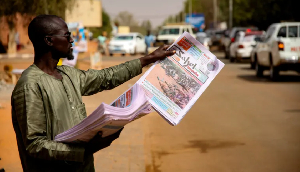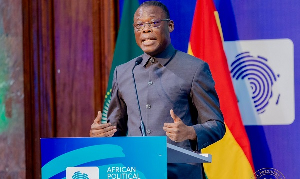Accra, Oct. 26, GNA - National Health Insurance Scheme (NHIS) and Poverty Alleviation Fund (PAF) administrators were on Thursday urged to de-politicise their operations to ensure that all Ghanaians benefited from the schemes.
Incorporating party political tag on any national development policy blurred its effective implementation; created avenue for party officials to unduly interfere; especially in the execution of projects; leading to massive corruption in the system, Mr Vitus Azeem, Coordinator of the Integrated Social Development Centre (ISODEC); said at the media launch of a survey report in Accra.
The survey dubbed: "Social Accountability and Poverty Reduction in Ghana - Community Assessment of Five Districts," was conducted by Centre for Budget Advocacy (CBA) of ISODEC.
The survey seeks to verify whether resources allocated to vulnerable and excluded groups for poverty reduction expenditures actually get to them and how they are used. It is also to get the communities to evaluate service delivery and the implementation of the Growth and Poverty-Reduction Strategy (GPRS) in selected districts with a view to its overall impact on poverty.
It was also to promote social and public accountability at the Assembly level by empowering communities to hold public officials and service providers accountable for their work towards reducing poverty and improving the quality of life of the people.
It was conducted in five districts - Builsa and Bawku West in the Upper East, West Gonja in Northern and Wa Municipal Assembly in the Upper West Regions.
Mr Azeem noted that the survey revealed that communities mainly perceived development as the existence of good drinking water and availability of major services like education, health and credit facilities.
The farming communities also wanted a well mechanized farming system, where farm inputs were readily available and dams for dry season farming.
"To them, development also meant less poverty, less unemployment, affordable school fees and accessible health facilities...they viewed projects based on how they would benefit from a service and how it contributed towards alleviating poverty.
"A borehole project would be considered good if it provided water all year round, if quality materials were used to construct the borehole, if the water had good taste, if the location of the borehole was accessible and if the service provider carried out regular maintenance of the facility," he said.
According to the survey the communities recommended that projects should be demand-driven with periodic reviews of projects at sites by community members and service providers.
Mr Azeem said the communities called for sensitisation on the specific roles expected of each group and active involvement of community members at every stage of policy design and implementation. He noted that service providers also called for increased sense of ownership of programmes and projects by communities and the inculcation of a maintenance culture in the various communities.
Launching the report, Mr Kojo Yankah, President of the Africa Institute of Journalism and Communication (AIJC), challenged communication training institutions to inculcate into their educational curriculum topics that dealt with social accountability. "We need to train a new crop of journalists, who would be interested in social issues that affect the general populace, change from official mouth-piece reporting to focusing of national issues." 26 Oct. 06
General News of Thursday, 26 October 2006
Source: GNA












